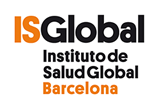Sabadell
In the city of Sabadell, all the women who attended the pregnancy care program and who had an ultrasound of their first trimester of pregnancy at CAP II Sant Felix (the only specialized primary care center in Sabadell the city) between July 2004 and In July 2006, they were invited to participate in the INMA study. A total of 657 women were included, who were followed in each trimester of pregnancy until the time of delivery at the Hospital de Sabadell (Corporació Sanitària Parc Taulí) which covers the entire population of Sabadell, acting as a specialized hospital of consultation and reference for. part.
An additional round of hiring pregnant women was held between May 2007 and July 2007, but directly when they went to give birth at Sabadell Hospital. A total of 120 women were included in this second phase.
Over the years, this group of children from the city of Sabadell have been evaluated approximately every 2 years, thanks to the predisposition of their families: that is, at 6 and 14 months, at 2, 4, 7, 9, 11 and 14 years. In July 2023 we have started the 18 years visit, and it is wonderful to acknowledge the valuable selfless collaboration of these young people, thanking them for their participation and commitment. Thank you for being part of this journey towards a brighter future.
-
Collaborating Entities
-
Processing of Data and Samples:
How do we treat your personal data and the biological samples we collect?
The data of the INMA-Sabadell birth cohort collected in the context of the INMA Project are kept at the Institut de Salut Global Barcelona (ISGlobal)
– Responsible for the Treatment: Private Foundation Instituto de Salud Global Barcelona (ISGlobal)
– CIF: G65341695
– Postal address: Carrer Rosselló, number 132, 2ª, 5ª and 7ª in Barcelona (08036)
– Telephone: (+34)932271806
– Data Protection Delegate, contact: lopd@isglobal.org
The data are treated with absolute confidentiality and in accordance with Regulation (EU) 2016/679 of the European Parliament and of the Council, of April 27, 2016, relating to the protection of individuals with regard to the processing of personal data and to the free circulation of this data and to Organic Law 3/2018, of December 5, on the protection of personal data and the guarantee of digital rights.
Health data is kept separate from personal data. Data dissociation means that your health information cannot be associated with you as your personal data is replaced by a numeric code. Dissociated information is archived for use by project researchers and their research partners. All the results of the study are presented in a database of the group of participants, data is never presented individually.
Personal data will be kept as long as the research project or successive projects within the same line of research is active, in this way your data may also be used by other projects / research within the area of the present project , or in global health research projects, both in infectious and non-communicable diseases, and environmental health, to study the effect of environmental factors on people’s health.
You are responsible for the veracity and correctness of the data you provide us and you have the right to exercise the rights of access, rectification, deletion, limitation of treatment, portability and opposition of your data in accordance with what has the regulations on data protection. To exercise them, you must write to the Data Protection Officer at lopd@isglobal.org and you must attach a photocopy of your national identification document or the equivalent. In addition to the possibility of exercising your rights, if you do not agree with the treatment carried out by the Entity or if you consider that your rights have been infringed, you can submit a claim at any time to the Spanish Data Protection Agency.
Biological samples are treated in accordance with current legislation (Law 14/2007 on biomedical research, and Royal Decree 1716/2011 regulating the use of biological samples for research). The samples are stored in the ISGlobal biobank, at Campus Mar (Barcelona Biomedical Research Park) and are included in collection C.0001626 included in the Registry of Collections of the Instituto de Salud Carlos III. These are only used in research projects directly related to the INMA Project and with the aim of studying biomarkers related to the effect of environmental factors on health.
The data obtained from the use of these samples will be treated in the same way as the rest of the data obtained in this study.
The provision of biological samples for this study is free and voluntary. This assumes that you will have no rights to potential commercial benefits from discoveries that may result from the biomedical research.
Finally, if you decide to withdraw your consent to participate in this study, no new data will be added to the database from the date you inform us that you decide to withdraw, and only the data obtained up to that time will be retained, to ensure the validity of the research. You can also request that the identifiable biological samples obtained so far be destroyed, so that no further analysis can be carried out.
Buscador
Worldwide trends in underweight and obesity from 1990 to 2022: a pooled analysis of 3663 population-representative studies with 222 million children, adolescents, and adults
NCD Risk Factor Collaboration (NCD-RisC). Worldwide trends in underweight and obesity from 1990 to 2022: a pooled analysis of 3663 population-representative studies with 222 million children, adolescents, and adults. Lancet. 2024 Mar 16;403(10431):1027-1050. PMID: 38432237
Early childcare arrangements and children’s internalizing and externalizing symptoms: an individual participant data meta-analysis of six prospective birth cohorts in Europe
Barry KM, Avraam D, Cadman T, Elhakeem A, El Marroun H, Jansen PW, Nybo-Andersen AM, Strandberg-Larsen K, Safont LG, Soler-Blasco R, Barreto-Zarza F, Julvez J, Vrijheid M, Heude B, Charles MA, Gomajee AR, Melchior M. Early childcare arrangements and children’s internalizing and externalizing symptoms: an individual participant data meta-analysis of six prospective birth cohorts in Europe. Lancet Reg Health Eur. 2024 Aug 21;45:101036. PMID: 39262448
Socioeconomic position during pregnancy and pre-school exposome in children from eight European birth cohort studies
Pizzi C, Moirano G, Moccia C, Maule M, D’Errico A, Vrijheid M, Cadman TJ, Fossati S, Nieuwenhuijsen M, Beneito A, Calas L, Duijts L, Elhakeem A, Harris JR, Heude B, Jaddoe V, Lawlor DA, Lioret S, McEachan RR, Nader JL, Pedersen M, Pinot de Moira A, Strandberg-Larsen K, Subiza-Pérez M, Vafeiadi M, Welten M, Wright J, Yang TC, Richiardi L. Socioeconomic position during pregnancy and pre-school exposome in children from eight European birth cohort studies. Soc Sci Med. 2024 Oct;359:117275. PMID: 39236481
Urban environment exposures, energy balance-related behaviors and their combination in preschoolers from three European countries
Descarpentrie A, Dargent-Molina P, Arregi A, Carrasco P, Estarlich M, Guxens M, McEachan R, Nieuwenhuijsen M, Subiza-Pérez M, Wright J, Charles MA, Heude B, Vrijheid M, Lioret S. Urban environment exposures, energy balance-related behaviors and their combination in preschoolers from three European countries. Environ Int. 2024 Aug;190:108880. PMID: 39024825
The association of Helicobacter pylori with adverse pregnancy outcomes in three European birth cohorts
Galan R, Pembrey L, Bustamante M, Aguilar R, Mason D, Vidal M, Bañuls M, Roumeliotaki T, Delgado-Saborit JM, Marin N, Vrijheid M, Bempi V, Moncunill G, Dobaño C, Kogevinas M, Karachaliou M. The association of Helicobacter pylori with adverse pregnancy outcomes in three European birth cohorts. BMC Pregnancy Childbirth. 2024 Nov 12;24(1):745. PMID: 39533217
Early life exposure to mercury and relationships with telomere length and mitochondrial DNA content in European children
Lozano M, McEachan RRC, Wright J, Yang TC, Dow C, Kadawathagedara M, Lepeule J, Bustamante M, Maitre L, Vrijheid M, Brantsæter AL, Meltzer HM, Bempi V, Roumeliotaki T, Thomsen C, Nawrot T, Broberg K, Llop S. Early life exposure to mercury and relationships with telomere length and mitochondrial DNA content in European children. Sci Total Environ. 2024 Jul 1;932:173014. PMID: 38729362.
Green space exposure and blood DNA methylation at birth and in childhood – A multi-cohort study
Aguilar-Lacasaña S, Fontes Marques I, de Castro M, Dadvand P, Escribà X, Fossati S, González JR, Nieuwenhuijsen M, Alfano R, Annesi-Maesano I, Brescianini S, Burrows K, Calas L, Elhakeem A, Heude B, Hough A, Isaevska E, W V Jaddoe V, Lawlor DA, Monaghan G, Nawrot T, Plusquin M, Richiardi L, Watmuff A, Yang TC, Vrijheid M, F Felix J, Bustamante M. Green space exposure and blood DNA methylation at birth and in childhood – A multi-cohort study. Environ Int. 2024 Jun;188:108684. PMID: 38776651.
Integrating Multi-Omics with environmental data for precision health: A novel analytic framework and case study on prenatal mercury induced childhood fatty liver disease
Goodrich JA, Wang H, Jia Q, Stratakis N, Zhao Y, Maitre L, Bustamante M, Vafeiadi M, Aung M, Andrušaitytė S, Basagana X, Farzan SF, Heude B, Keun H, McConnell R, Yang TC, Siskos AP, Urquiza J, Valvi D, Varo N, Småstuen Haug L, Oftedal BM, Gražulevičienė R, Philippat C, Wright J, Vrijheid M, Chatzi L, Conti DV. Integrating Multi-Omics with environmental data for precision health: A novel analytic framework and case study on prenatal mercury induced childhood fatty liver disease. Environ Int. 2024 Aug;190:108930. PMID: 39128376
Cesarean delivery and blood DNA methylation at birth and childhood: Meta-analysis in the Pregnancy and Childhood Epigenetics Consortium
Wang S, Casey E, Sordillo J, Aguilar-Lacasaña S, Morales Berstein F, Biedrzycki RJ, Brescianini S, Chen S, Hough A, Isaevska E, Kim WJ, Lecorguillé M, Li SS, Page CM, Park J, Röder S, Salontaji K, Santorelli G, Sun Y, Won S, Zillich E, Zillich L, Annesi-Maesano I, Arshad SH, Bustamante M, Cecil CAM, Elliott HR, Ewart S, Felix JF, Gagliardi L, Håberg SE, Herberth G, Heude B, Holloway JW, Huels A, Karmaus W, Koppelman GH, London SJ, Mumford SL, Nisticò L, Popovic M, Rusconi F, Schisterman EF, Stein DJ, Send T, Tiemeier H, Vonk JM, Vrijheid M, Wiemels JL, Witt SH, Wright J, Yeung EH, Zar HJ, Zenclussen AC, Zhang H, Chavarro JE, Hivert MF. Cesarean delivery and blood DNA methylation at birth and childhood: Meta-analysis in the Pregnancy and Childhood Epigenetics Consortium. Sci Adv. 2024 Nov 29;10(48):eadr2084. PMID: 39602535
Machine learning-based health environmental-clinical risk scores in European children
Guimbaud JB, Siskos AP, Sakhi AK, Heude B, Sabidó E, Borràs E, Keun H, Wright J, Julvez J, Urquiza J, Gützkow KB, Chatzi L, Casas M, Bustamante M, Nieuwenhuijsen M, Vrijheid M, López-Vicente M, de Castro Pascual M, Stratakis N, Robinson O, Grazuleviciene R, Slama R, Alemany S, Basagaña X, Plantevit M, Cazabet R, Maitre L. Machine learning-based health environmental-clinical risk scores in European children. Commun Med (Lond). 2024 May 23;4(1):98. PMID: 38783062
1 / 51








